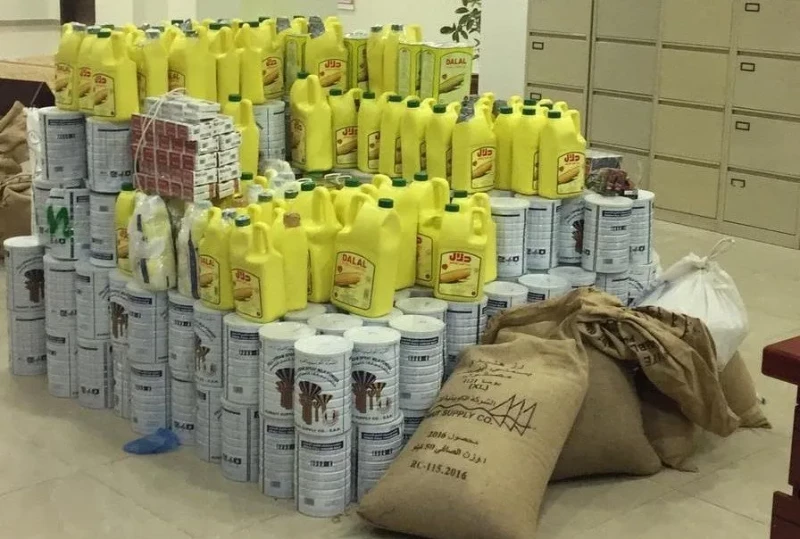Latest News
- Shortage Of Fishermen Leads To Mullet Scarcity In Fish Market
- Unknown Woman Swaps Real Gold For Fakes In Jahra
- Fire Department Shuts Down 54 Shops For Safety Violations
- Man Sentence To Death For Killing Father Under Influence Of Drug...
- Weekend Temperatures In Kuwait To Reach 50°C
- 64,000 Traffic Violations Issued In A Week
- MoE Explores Special Classes For Students With Learning Difficul...
- Kuwaiti Doctors Recorded The Highest Pass In Specialization Exam...
- PART Launches SCADA System For Rainy Season Prep
- Health Ministry Refutes Rumors On New Infectious Diseases Hospit...
- MoH Deploys Mobile Generators For Uninterrupted Healthcare Servi...
- Kuwait Is Expecting A Budget Deficit Of $18 Billion
Commodity Prices Are Expected To Rise In Kuwait In The Near Future

A government report expects the world’s economies to witness further increases in commodity prices in the coming period, especially in food prices, which will put more pressure on countries that depend on food imports, or countries where climate or conflict shocks could lead to disrupt local food production, in addition to countries that suffer from macroeconomic fragility, pointing out the need to take urgent decisions to reduce the impact of global food price increases on the local market, especially since its cost will be high on the national economy.
According to the report, food prices will continue to rise during the next five years, despite their stability, but will be higher than before the Covid-19 pandemic.
Prices of agricultural commodities and grain are expected to remain stable, but levels are expected to exceed those before the Corona crisis.
According to data from Kuwait's Central Administration of Statistics, consumer price indexes (inflation) increased by 3.79 % in November last year, and that the rise in inflation on an annual basis was primarily due to an increase in prices for all the main groups that influenced the index numbers, especially food.
The government reports that Kuwait imports most of its merchandise in the form of appliances, machinery, equipment, and industrial inputs, while it imports an estimated 80% of its food. The Kuwaiti economy is characterized by a high per capita income and a limited industrial base, which may explain the steady growth in merchandise imports over the past ten years.
Cooperative societies account for 80% to 85% of all food commodities sold on the local market and are the most important outlet for selling them. Thus, any measures aimed at neutralizing price increases in the local market must focus on cooperative societies.
The sources added that the method of importing merchandise by ship is the most important channel for transporting goods to Kuwait, exceeding 85% of total imports, while shipping by land does not exceed 10%. There has been a disruption in the ports and shortage of containers as a result of Kuwaiti imports being exposed to shipping methods via the sea.
Trending News
-
 Kuwait Lifted The Ban On Filipino Workers
23 June 2024
Kuwait Lifted The Ban On Filipino Workers
23 June 2024 -
 Kuwait Relaxes Family Sponsorship Rules
30 June 2024
Kuwait Relaxes Family Sponsorship Rules
30 June 2024 -
 2 Hours Power Cut In Multiple Areas Of Kuwait Betw...
20 June 2024
2 Hours Power Cut In Multiple Areas Of Kuwait Betw...
20 June 2024 -
 Kuwait To Lift Ban On Transfer Of Domestic Help Vi...
26 June 2024
Kuwait To Lift Ban On Transfer Of Domestic Help Vi...
26 June 2024 -
 Crackdown On Building Violations In Kuwait Followi...
27 June 2024
Crackdown On Building Violations In Kuwait Followi...
27 June 2024 -
 Kuwaiti Woman Beaten To Death
29 June 2024
Kuwaiti Woman Beaten To Death
29 June 2024 -
 Kuwait To Add 1,200 Megawatts To Address Electrici...
22 June 2024
Kuwait To Add 1,200 Megawatts To Address Electrici...
22 June 2024 -
 Kuwait Municipality Blocks 245 Buildings In Farwan...
24 June 2024
Kuwait Municipality Blocks 245 Buildings In Farwan...
24 June 2024 -
 Security Campaigns And Checkpoints Will Be Set Up...
24 June 2024
Security Campaigns And Checkpoints Will Be Set Up...
24 June 2024 -
 Kuwait Announces Public Holiday On July 7, 2024
02 July 2024
Kuwait Announces Public Holiday On July 7, 2024
02 July 2024











Comments Post Comment